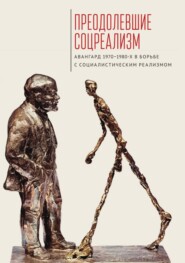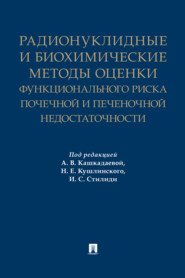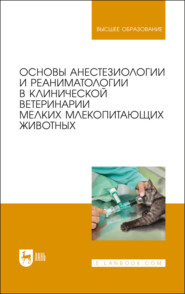По всем вопросам обращайтесь на: info@litportal.ru
(©) 2003-2024.
✖
Stories by English Authors: England
Настройки чтения
Размер шрифта
Высота строк
Поля
A reasonable time after this (for my tale is merciful and skips formalities and torturing delays) these two were very happy; they were once more upon the railroad, going to enjoy their honeymoon all by themselves. Marian Dolignan was dressed just as before – duck-like and delicious, all bright except her clothes; but George sat beside her this time instead of opposite, and she drank him in gently from her long eyelashes.
"Marian," said George, "married people should tell each other all.
Will you ever forgive me if I own to you; no – "
"Yes, yes!"
"Well then, you remember the Box Tunnel?" (This was the first allusion he had ventured to it.) "I am ashamed to say I had three pounds to ten pounds with White I would kiss one of you two ladies," and George, pathetic externally, chuckled within.
"I know that, George; I overheard you," was the demure reply.
"Oh! you overheard me! Impossible."
"And did you not hear me whisper to my companion? I made a bet with her."
"You made a bet? how singular! What was it?"
"Only a pair of gloves, George."
"Yes, I know; but what about it?"
"That if you did you should be my husband, dearest."
"Oh! but stay; then you could not have been so very angry with me, love. Why, dearest, then you brought that action against me."
Mrs. Dolignan looked down.
"I was afraid you were forgetting me! George, you will never forgive me?"
"Sweet angel! why, here is the Box Tunnel!"
Now, reader – fie! no! no such thing! you can't expect to be indulged in this way every time we come to a dark place. Besides, it is not the thing. Consider – two sensible married people. No such phenomenon, I assure you, took place. No scream in hopeless rivalry of the engine – this time!
MINIONS OF THE MOON
BY F. W. ROBINSON
Our story is of the time when George III was king, and our scene of action lies only at an old farm-house six miles or so from Finchley – a quaint, ramshackle, commodious, old-fashioned, thatched farm-house that we see only in pictures now, and which has long since been improved off the face of the earth.
It was a farm estate that was flourishing bravely in those dear disreputable days when the people paid fivepence a pound for bread, and only dared curse Protection in their hearts; when few throve and many starved, and younger sons of gentry, without interest at court or Parliament, either cut the country which served them so badly, or took to business on the king's highway and served the country badly in return.
The Maythorpe Farm belonged to the Pemberthys, and had descended from father to son from days lying too far back to reckon up just now; and a rare, exclusive, conservative, bad-tempered, long-headed race the Pemberthys had always borne the reputation of being, feathering their own nests well, and dying in them fat and prosperous.
There were a good many Pemberthys scattered about the home and midland counties, but it was generally understood in the family that the head of the clan, as it were, lived at Maythorpe Farm, near Finchley, and here the Pemberthys would forgather on any great occasion, such as a marriage, a funeral, or a christening, the funeral taking precedence for numbers. There had been a grand funeral at Maythorpe Farm only a few days before our story opens, for Reuben Pemberthy had been consigned to his fathers at the early age of forty-nine. Reuben Pemberthy had left one son behind him, also named Reuben, a stalwart, heavy-browed, good-looking young fellow, who, at two and twenty, was quite as well able to manage the farm and everybody on it as his father had been before him. He had got rid of all his relatives save two six days after his father's funeral; and those two were stopping by general consent, because it was signed, sealed, and delivered by those whom it most concerned, that the younger woman, his cousin, pretty Sophie Tarne, was to be married before the year was out to the present Reuben Pemberthy, who had wooed her and won her consent when he went down to her mother's house at King's Norton for a few days' trip last summer. Being a steady, handsome fellow, who made love in downright earnest, he impressed Sophie's eighteen years, and was somewhat timidly but graciously accepted as an affianced suitor. It was thought at King's Norton that Mrs. Tarne had done a better stroke of business in the first year of her widowhood than her late husband had done – always an unlucky wretch, Timothy – in the whole course of his life. And now Sophie Tarne and her mother were staying for a few days longer at Maythorpe Farm after the funeral.
Mrs. Tarne, having been a real Pemberthy before her unfortunate marriage with the improvident draper of King's Norton, was quite one of the family, and seemed more at home at Finchley than was the new widow, Mrs. Pemberthy, a poor, unlucky lady, a victim to a chronic state of twittering and jingling and twitching, but one who, despite her shivers, had made the late Reuben a good wife, and was a fair housekeeper even now, although superintending housekeeping in jumps, like a palsy-stricken kangaroo.
So Sophie and her bustling mother were of material assistance to Mrs. Pemberthy; and the presence of Sophie in that house of mourning – where the mourning had been speedily got over and business had begun again with commendable celerity – was a considerable source of comfort to young Reuben, when he had leisure after business hours, which was not always the case, to resume those tender relations which had borne to him last autumn such happy fruit of promise.
Though there was not much work to do at the farm in the winter-time, when the nights were long and the days short, yet Reuben Pemberthy was generally busy in one way or another; and on the particular day on which our story opens Reuben was away at High Barnet.
It had been a dull, dark day, followed by a dull, dark night. The farm servants had gone to their homes, save the few that were attached to the premises, such as scullery-maids and dairymaids; and Mrs. Pemberthy, Mrs. Tarne, and her daughter Sophie were waiting early supper for Reuben, and wondering what kept him so long from his home and his sweetheart.
Mrs. Tarne, accustomed, mayhap, to the roar and bustle of King's Norton, found the farm at Finchley a trifle dull and lonely, – not that in a few days after a funeral she could expect any excessive display of life or frivolity, – and, oppressed a bit that evening, was a trifle nervous as to the whereabouts of her future son-in-law, who had faithfully promised to be home a clear hour and a half before the present time, and whose word might be always taken to be as good as his bond. Mrs. Tarne was the most restless of the three women. Good Mrs. Pemberthy, though physically shaken, was not likely to be nervous concerning her son, and, indeed, was at any time only fidgety over her own special complaints – a remarkable trait of character deserving of passing comment here.
Sophie was not of a nervous temperament; indeed, for her eighteen years, was apparently a little too cool and methodical; and she was not flurried that evening over the delay in the arrival home of Reuben Pemberthy. She was not imaginative like her mother, and did not associate delay with the dangers of a dark night, though the nights were full of danger in the good old times of the third George. She went to the door to look out, after her mother had tripped there for the seventh or eighth time, not for appearances' sake, for she was above that, but to keep her mother company, and to suggest that these frequent excursions to the front door would end in a bad cold.
"I can't help fearing that something has happened to Reu," said the mother; "he is always so true to time."
"There are so many things to keep a man late, mother."
"Not to keep Reuben. If he said what hour he'd be back – he 's like his father, my poor brother – he'd do it to the minute, even if there weren't any reason for his hurry."
"Which there is," said Sophie, archly.
"Which there is, Sophie. And why you are so quiet over this I don't know. I am sure when poor Mr. Tarne was out late – and he was often very, very late, and the Lord knows where he'd been, either! – I couldn't keep a limb of me still till he came home again. I was as bad as your aunt indoors there till I was sure he was safe and sound."
"But he always came home safe and sound, mother."
"Nearly always. I mind the time once, though – bless us and save us, what a gust!" she cried, as the wind came swooping down the hill at them, swirling past them into the dark passage and puffing the lights out in the big pantry beyond, where the maids began to scream. "I hope he hasn't been blown off his horse."
"Not very likely that," said Sophie, "and Reuben the best horseman in the county. But come in out of the gale, mother; the sleet cuts like a knife too, and he will not come home any the sooner for your letting the wind into the house. And – why, here he comes after all. Hark!"
There was a rattling of horses' hoofs on the frost-bound road; it was a long way in the distance, but it was the unmistakable signal of a well-mounted traveller approaching – of more than one well-mounted traveller, it became quickly apparent, the clattering was so loud and incessant and manifold.
"Soldiers!" said Sophie. "What can bring them this way?"
"It's the farmers coming the same way as Reuben for protection's sake these winter nights, child."
"Protection?"
"Haven't you heard of the highwaymen about, and how a single traveller is never safe in these parts? Or a double one either – or – "
"Perhaps these are highwaymen."
"Oh, good gracious! Let us get indoors and bar up," cried Mrs. Tarne, wholly forgetful of Reuben Pemberthy's safety after this suggestion. "Yes, it's as likely to be highwaymen as soldiers."
It was more likely. It was pretty conclusive that the odds were in favour of highwaymen when, five minutes afterward, eight mounted men rode up to the Maythorpe farm-house, dismounted with considerable noise and bustle, and commenced at the stout oaken door with the butt-ends of their riding-whips, hammering away incessantly and shouting out much strong language in their vehemence. This, being fortunately bawled forth all at once was incomprehensible to the dwellers within doors, now all scared together and no longer cool and self-possessed.
"Robbers!" said Mrs. Tarne.
"We've never been molested before, at least not for twenty years or more," said Mrs. Pemberthy; "and then I mind – "
"Is it likely to be any of Reuben's friends?" asked Sophie, timidly.
"Oh no; Reuben has no bellowing crowd like that for friends. Ask who is there – somebody."
But nobody would go to the door save Sophie Tarne herself. The maids were huddled in a heap together in a corner of the dairy, and refused to budge an inch, and Mrs. Tarne was shaking more than Mrs. Pemberthy.

















